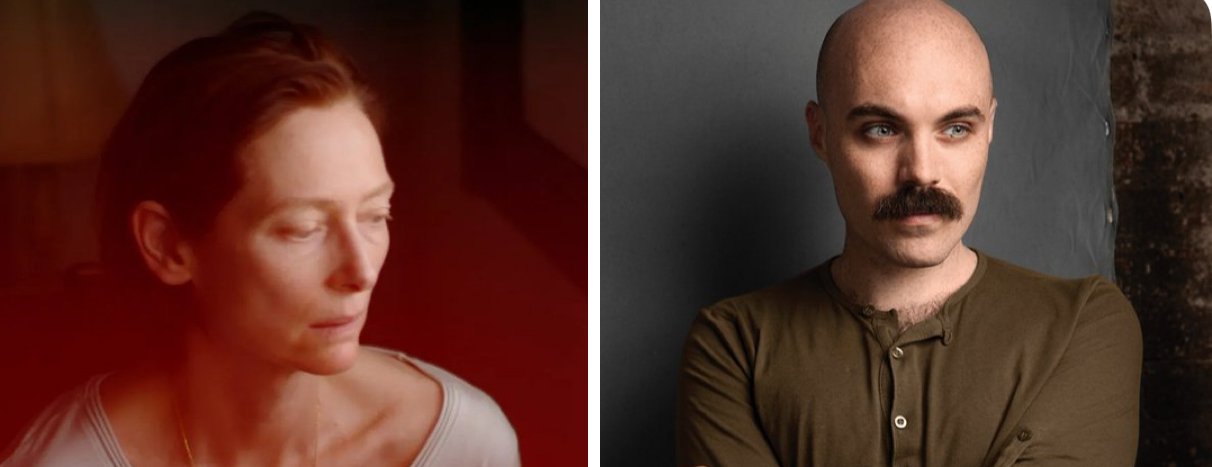“Russian Doll” is a new spin on the time-loop story which was popularized by “Groundhog Day” more than 25 years ago. That film’s concept caught on to the point where there is now a film, every year or so, which uses the gimmick. It all has to do with the notion of "If I had that to do over, I'd do it differently.” Most recently, and most successfully, was a jump towards sci-fi in which “Edge of Tomorrow” and “Source Code” used it in ways that brought a sense of newness to the gimmick, nevertheless, it’s a concept that still has many rolling their eyes whenever used, check out the less-than-successful YA flick ‘Before I Fall.”
However, what distinguishes “Russian Doll” from all the others is that, yes, it does use the time loop gimmick, but it turns it over its head by finding a way to completely demolish our perception of how it can be used and constructed in a narrative. In other words, it’s a starling groundbreaker.
Starring the great Natasha Lyonne (“Orange Is The New Black” “American Pie”), the film takes place in the underground world of New York City, and because of that it is clearly inspired by Scorsese’s ‘After Hours,” in its capturing of a city that never sleeps and only gets weirder and dicier by the hour.
Lyonne’s Nadia, a self-described “ill-mannered combination of Andrew Dice Clay and the animated redheaded heroine from “Brave,” is an acerbic, chain-smoking software designer - Lyonne almost plays it like she is channeling Peter Falk, carrying the story from beginning to end detective-like workmanship. The opening image, and one we will frequently see throughout, is her staring herself down in the bathroom mirror at her 36th birthday party, somewhere in the East Village. Harry Nilsson‘s almost-too-sunny-for-its-own-good “Gotta Get Up,” which has turned into a phenomenon of its own ever since the show aired, plays in the background. A compulsive drinker, Nadia tokes on an “Israeli joint,” which is Tobacco laced with cocaine, flirts and flaunts, barks acerbic and sardonic wit at her friends, and hooks up with a morally depraved English professor. After the hookup, Nadia takes a walk in the wee-wee hours of the morning, in search of her missing cat Oatmeal, gets hit by a car, and dies. She then reawakes, staring at that same mirror, at that same birthday party, with that same Nilsson song playing in the background.
And thus, the time-loop trope is activated. The amount of times Nadia dies in the show’s eight episodes are endless, not to mention inventively different, but Nadia always awakes back up in that bathroom, located in that same weird loft with those same weird friends. “I’m interested in plagiarism as an art form,” says Nadia’s friend Maxine (Greta Lee) in a tongue in cheek nod to the show’s obvious familiarity. However, stick with it, if the first two episodes seem wildly familiar, there’s a twist in Episode 3 that shakes up the structure. As with many of these sort of narratives, it’s better not to reveal anything else, except to just watch and experience it for yourself.
This isn’t a straight-up comedy (despite Poeller credited as the writer). “Russian Doll” is a beastly hybrid of horror, sci-fi, comedy and drama. It is tonally risk-taking, infusing into its narrative elements of almost every 21st century movie genre imaginable in its storytelling. Creators Lyonne, Amy Poehler, and Leslye Headland bring so much color and imagination to their story that it’s impossible not to be sucked in by the theatrics.
The directing in this series is highly-stylized and very tongue-in-cheek, no sign of an up and coming Scorsese, but kudos to directors Jamie Babbit, Headland and even Lyonne, who directs the finale. They make sure the raison-d’etre of the series is never lost on the viewer. There is a clear and concise driving force that promulgates “Russian Doll” forward, this is very much a team effort to create a bigger picture. The creative collaboration between Babbit, Lyonne, Headland and Poehler is second-to-none, these ladies know exactly what they’re doing and where they want their narrative to go. It’s that rare instance where a complicated and original idea is actually handled in such precise and on-target ways by a team of creatives.
Sure, some of it is about Lyonne's Nadia facing her own selfishness, but there isn’t too much pandering either. This isn’t necessarily a show which will end conventionally, in fact, it keeps on introducing new characters until the very last shot, and the startlingly important details that emerge episode-by-episode automatically hook you, layer by layer, like a peeling onion of a story which is all-too-impossible to predict until a bittersweet and unexpected ending brings it all home.
It’s all done in eight short episodes, a four hour, thoughtfully existential feast which, like the best of art, asks questions large and small about death, depression and love. A meditation, of sorts, on people needing people. [A-]





